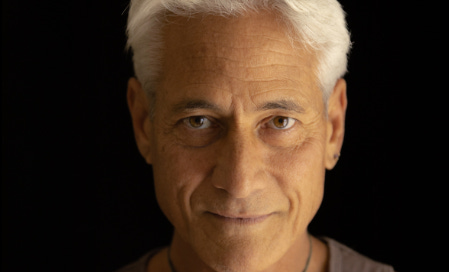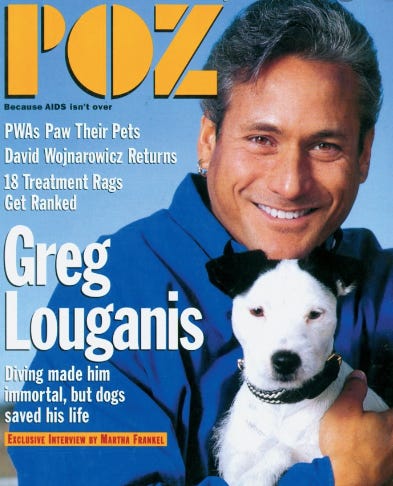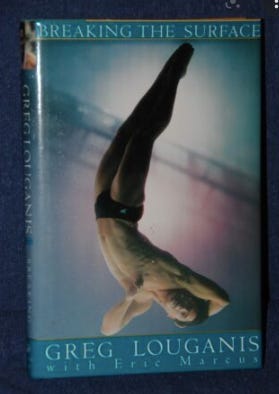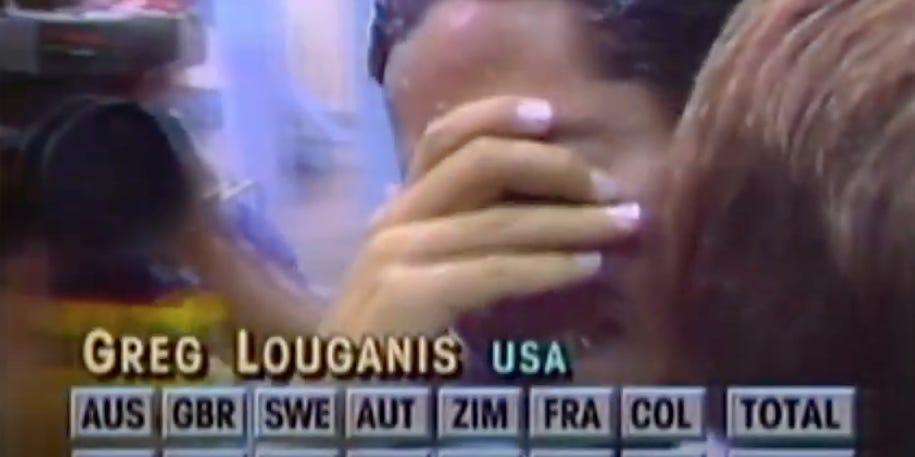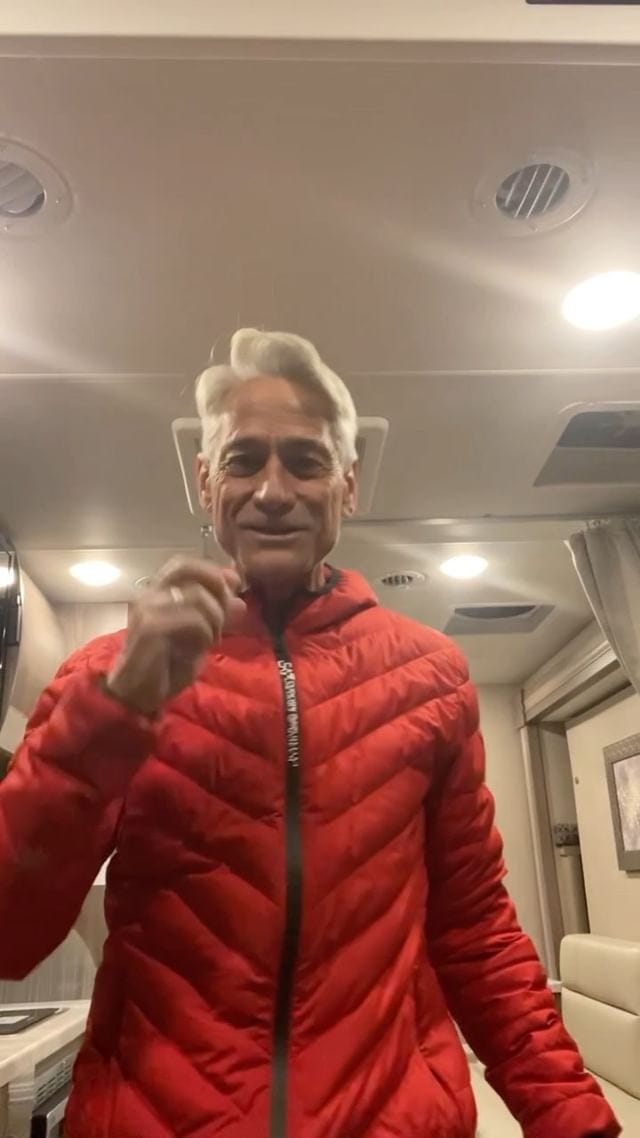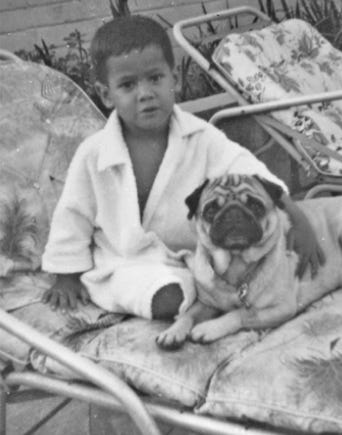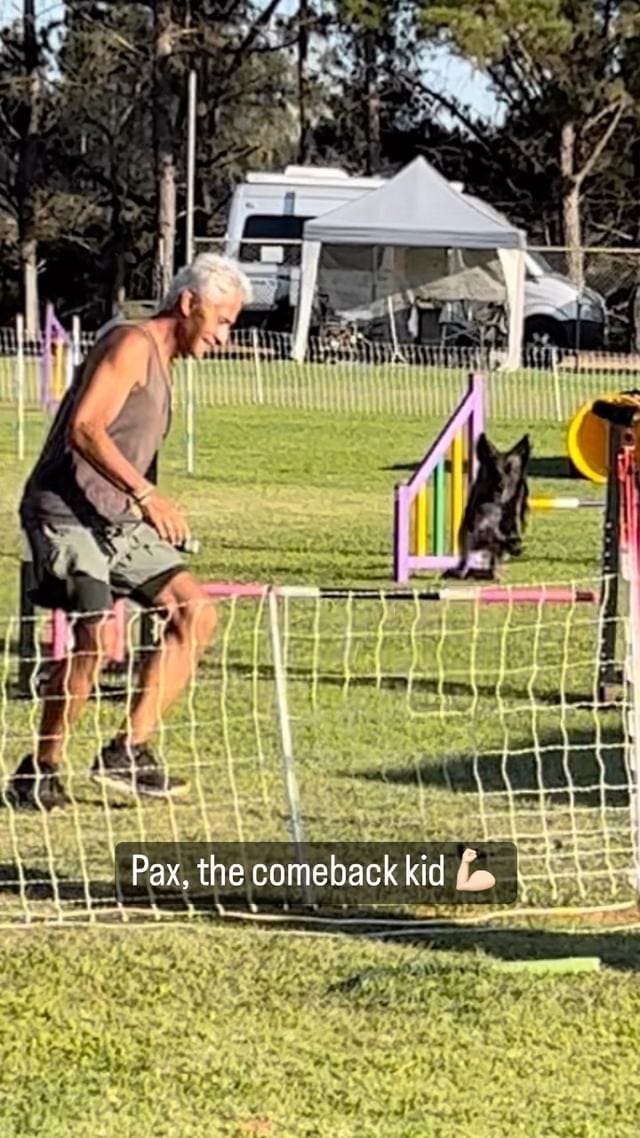You Know Greg Louganis. Now Meet His Shadow Child, Oscar.
At 62, the four-time Olympic gold diver has rebuilt his life around his beloved dogs, travel via RV and continuing to heal the wounds of the past.
Happy November, Caftan readers! I hope you've all been well. As I write this, I'm nervous about the midterms, but I'll try to refrain from going on about that. Otherwise, I've been well, busy with my bread-and-butter writing gigs (one for a large national pro-immigration advocacy group), with teaching advanced undergraduate fiction at NYU, with ramping up toward the publication of my novel "Speech Team" next summer and with working on yet another novel that I hope will see the light of day someday! I also had a few great mid-October days in Berlin, a city I absolutely adore—the perfect mix of indie scruffiness and a well-ordered, laid-back civility that NYC sorely lacks! (e.g. in Berlin, no e-bike, moped or scooter riders nearly mowed me down on the sidewalk—what has become par for the course here in post-Covid NYC.)

I have such a legend for you this month: Multiple Olympic diving gold winner Greg Louganis, who is now 62. I'd kept up with Greg, who has been openly HIV-positive since he confessed it on national TV to Barbara Walters in 1995...
...via POZ, the HIV/AIDS magazine, where I used to work in the early-mid 2000s and have contributed to ever since. Greg would pop up there from time to time, as he went into his post-diving life training show dogs.
But I don't think I've ever interviewed him before. One thing I'll say is, if you read Greg's 1995 bio (as told to the wonderful gay writer Eric Marcus) Breaking the Surface…
…and watch the terrific 2014 doc on him, "Back on Board,” which you can watch in its entirety right here…
…then it's clear there's been a tremendous amount of pain and sadness in Greg's life. As a Samoan child adopted by Greek Americans (hence the last name), he was severely bullied and called a sissy, the N-word (because he was darker than his white classmates) and a retard (because he had undiagnosed dyslexia). He survived one incredibly abusive and duplicitous relationship. He endured the unimaginable stress of keeping the secret of being gay and HIV-positive while training for and competing in the Olympics—I mean, we've all seen Greg's head hit the board in 1988 at Seoul…
…and then there was the public media shaming he got years later for "putting at risk" the doctor who stitched him up, even though the risk of his transmitting HIV to the doctor (even as he worked without gloves) was infinitesimal at best.
When I watched the footage of Greg taking the final gold medal of his Olympic career a few days after the head injury and sobbing into the arms of his coach, Ron O'Brien (a true mensch of a guy)…
…I cried too—to think of his having pulled off such excellence under such incredibly isolating stress was simply too much for me.
And Greg has not always had the easiest go of it post-diving. He's struggled financially, having lost his beloved Malibu home about eight years ago, and it's absolutely infuriating to think about the millions of dollars in endorsements he'd likely have gotten during and after the Olympics, which would have stabilized him financially, if it hadn't been widely rumored that he was gay.
I have to be honest—I don't think this is my greatest Caftan interview so far. Greg's assistant told me in advance that he'd be able to give me only about an hour—which, in fact, we extended to 90 minutes—as he was preparing for a road trip.
As this was set up by his assistant, I did not have the opportunity to correspond or briefly chat with Greg beforehand, to establish a rapport and explain in my own words what The Caftan Chronicles was about, and when we finally got on the line, he seemed kind of weary and impatient. He's spoken of a lifelong struggle with depression and of feeling detached from other people, and I could sense all that in a certain flatness. And I was a bit surprised at how abruptly he ended the interview, even though we were coming up on the 90-minute mark, just as I was asking him about his current relationship to diving—I'd wanted to ask him how all those very intense memories sit with him today. I'm not one for asking people the same tired questions they've been asked a million times, like, "What was your first thought when you landed in the water after hitting your head on the board?" But I am interested in asking people what their present-day relationship is to past high-profile chapters in their lives. Pride? Resentment? Regrets?
Well, we didn't quite get there. But having said that, Greg still shared quite a bit. I'll admit—watching footage of gorgeous young diver Greg or older doing-the-best-he-can Greg fills me with a certain sadness. But that's partly because I recognize some of that sadness in myself—in fact, I think it's a common trait across gay men, especially us older ones, because certain aspects of our lives—the bullying, the closetedness, the familial or social or career rejection, never mind AIDS in all its loss and horror—are, well, just fucking sad!
So I'm not saying that Greg made me sad in a negative or disappointed way. I started Caftan Chronicles as a place where we older gay men could talk about all aspects of our lives—outside the Straight Gaze, where we are often expected (IMHO) to be perpetually perky, saucy little elves constantly dispensing bon mots and fashion, beauty and decor advice. Blech—fuck that shit. We are actual people, not (merely!) court jesters for straight people—especially straight women. I say, let's take a note from Greg and get in touch with our shadow children—the better we know them, the less we have to let them rule our lives.
So with all that, I give you four-time Olympic gold winner, dog trainer and young-Adonis-turned-handsome-silver-haired daddy Greg Louganis! I hope you enjoy. Please tell folks about Caftan if you like it and ask them to subscribe for $5/month. Those of you who do, you continue to have my gratitude for making it possible to take time out from other work to do this every month. I'll see you all in December—the gent I had lined up just dropped out, so I'll be hustling to find someone else this coming week!
Tim: Greg, thank you so much for agreeing to do a Caftan Chronicles interview. There is so much I want to ask you! Can you start by describing your house?
Greg: I live in Topanga Canyon in L.A. in a modest house with an olive tree in the front, in a community that's mostly prefab homes. I live here with my two dogs, Pax, who's six, a Pyrenean Shepherd, and G., whose proper name is Gerard, who's a Hungarian Pumi and is two and a half. He just heard his name, so he came running over.
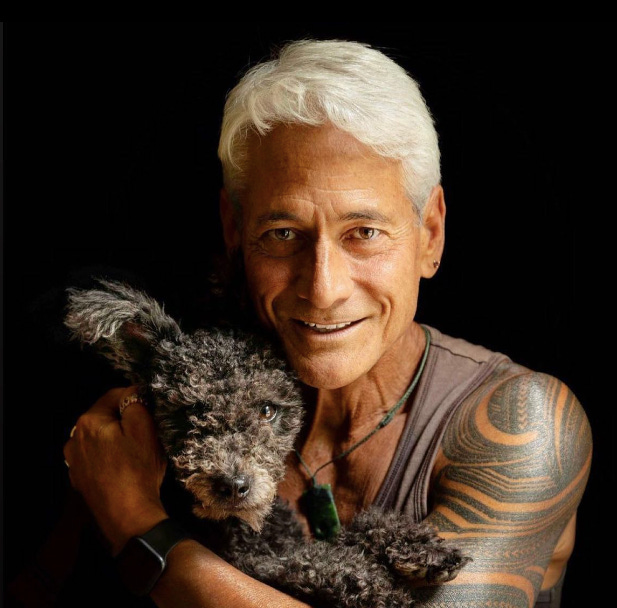
Tim: I know that training and showing dogs has been your great passion since the 90s. Do you show Pax and G.?
Greg: I both show and train them for dog agility competitions. G. has a lot of talent, so I have high hopes for him. Dog agility competitions are an obstacle course where dogs compete against other dogs their height on jumps, tunnels, poles, etc.
Tim: These are dogs number what and what for you?
Greg: I've lost count. I've had dogs I was training whose real talent was to be therapy dogs in prisons, convalescent homes, etc., so they were rehomed elsewhere.
Tim: What is it about dogs you love so much?
Greg: I've always loved animals—that's a part of who I am. Growing up, we had cats, dogs, iguanas, snakes, turtles—quite the menagerie.

But dogs give you unconditional love. They're true and honest and are probably the purest relationships I've had.
Tim: Do you think they've taken primacy over your relationships with people?
Greg: I'm much more comfortable with animals than people. But I also love the people who are involved in dog sports because they're very passionate about the training, care and welfare of their dogs, far beyond the average pet owner.
Tim: Okay. So what's a typical day for you?
Greg: I go to bed around 9pm and usually get up around five or five-thirty a.m. I prefer mornings because they're quiet and peaceful. I usually spend some time meditating, just focusing on my breathing. I've done it for years. Then I have green tea and weigh myself. Then I write down four things I'm grateful for—it could be someone I met at an event, some act of kindness like someone bringing my trash cans in while I was away. Just to put me in a space of gratitude, because then you're not in a space of judgment. Shit's always gonna happen, but if you're grounded and in a positive place, it may not be as traumatic as it could be.
Then, if I had a dream, I'll write down what it was about and how I felt about it, what that triggered. Then I'll take a cold shower, dress, get the dogs and hike around here about three miles, for about an hour. There is one woman whom I run into periodically with her border collie and we'll walk together. I don't let G. off his lead, though, because he's too small and there are quite a few coyotes around here.
Then the dogs get breakfast and I go to my computer and do emails. What I'm working on will vary. I just spoke to the Children's Rights Foundation, so before I did, I was gathering all my notes, who they are and what they do and all that. I'm speaking this week, so I'll get there on my maiden voyage in my Thor Tiburon, my new Mercedes RV. This way, instead of flying to venues with the dogs, we can drive to venues. I used to have an RV with my partner Daniel but now with this, the dogs and I are on our own. It's a great way to see the country.
Tim: Do you park it at night in a Wal-Mart parking lot, as many people with RVs do?
Greg: This time I made a reservation at a Kampgrounds of America site in Palm Springs, but yes, otherwise, I'll pull into a Wal-Mart for the night if I'm en route somewhere. RVers are an interesting community. You never know who you're gonna meet and everyone's generally very helpful. [I ask him if he's seen the Frances McDormand movie "Nomadland" and he says no, he hasn't heard of it.]
Tim: So what are these gigs you get?
Greg: It's random. Sometimes companies reach out directly to me, sometimes through a speakers' bureau, sometimes it's word-of-mouth. I speak on HIV/AIDS education and awareness, on diversity, trauma, health issues, attaining peak performance approaching big events, relaxation, visualization. I enjoy it, but I'm not crazy about being away from my dogs, so now with the RV hopefully I can take them with me more. Ideally on trips I'll combine a speaking event or worship with a dog agility trial so I'm utilizing my time in the best way.
Tim: Are you okay financially?
Greg: Yeah. There's an ebb and flow. Generally, Olympic years can be quite lucrative and off-years can be a bit of a struggle. I have a really simple life. Traveling as a diver, I've seen the world in a very unique way, being able to meet people and politicians whom tourists would usually not get to meet. I love it but I also appreciate being home around the dogs. I also like catching up with my friends at dog agility trials.

